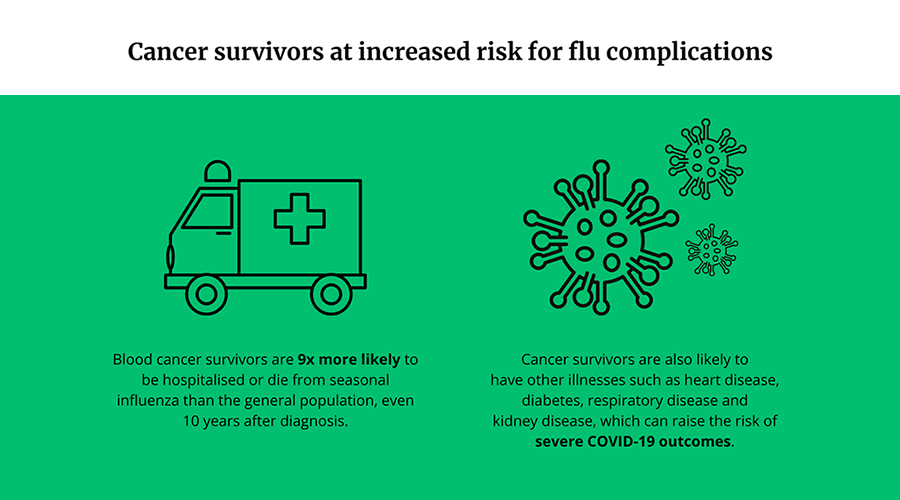The findings from a re-analysis of medical records of over 630,000 people in the United Kingdom between 1990 and 2014 showed that the rate of hospitalization for the flu for the 100,000 cancer survivors was far higher than for the non-cancer patients, and up to 9 times higher for survivors of blood cancers including leukemia, lymphoma, and multiple myeloma compared to the non-cancer patients. That increased risk persisted even in those whose cancer diagnoses had been more than 10 years in the past.
Senior author of the study Professor Krishnan Bhaskaran said, "These findings have an immediate relevance as we enter the winter period: we have a flu vaccine available, and the likelihood of a COVID-19 vaccine in the near future. Understanding how vaccination should be prioritized to protect the most vulnerable will be crucial over the next few months."
Survivors of other types of cancer also had more than double the risk of severe influenza for up to five years after their cancer diagnoses. The researchers at the London School of Hygiene and Tropical Medicine published their findings in the Nov. 30, 2020 journal EClinicalMedicine.
Despite these scary sounding numbers the absolute risk of developing severe flu was still relatively low even for cancer survivors, with about 1 in 1000 cancer survivors being hospitalized with the flu each year.
Nevertheless the implications for cancer survivors during the COVID-19 epidemic serve as a warning. The study also found that cancer survivors were more likely to have other diseases that are associated with increased risk of severe COVID-19 outcomes, such as heart disease, diabetes, respiratory disease and kidney disease.
Source: London School of Hygiene and Tropical Medicine press release, and journal of EClinicalMedicine



No comments:
Post a Comment